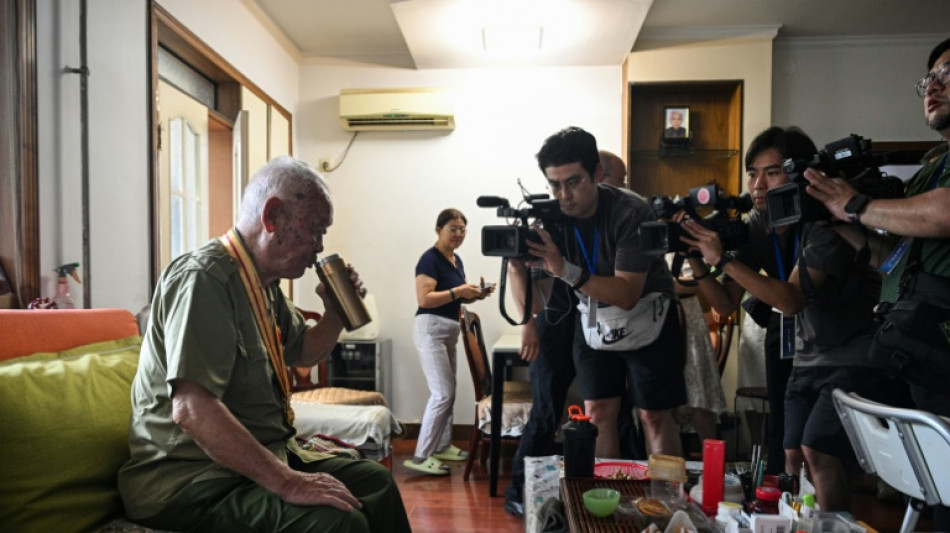
-
 NHL players will compete at Olympics, says international ice hockey chief
NHL players will compete at Olympics, says international ice hockey chief
-
Kohli surpasses Sangakkara as second-highest scorer in international cricket

-
 Young mother seeks five relatives in Venezuela jail
Young mother seeks five relatives in Venezuela jail
-
Arsenal villain Martinelli turns FA Cup hat-trick hero

-
 Syrians in Kurdish area of Aleppo pick up pieces after clashes
Syrians in Kurdish area of Aleppo pick up pieces after clashes
-
Kohli hits 93 as India edge New Zealand in ODI opener

-
 Trump tells Cuba to 'make a deal, before it is too late'
Trump tells Cuba to 'make a deal, before it is too late'
-
Toulon win Munster thriller as Quins progress in Champions Cup

-
 NHL players will complete at Olympics, says international ice hockey chief
NHL players will complete at Olympics, says international ice hockey chief
-
Leeds rally to avoid FA Cup shock at Derby

-
 Rassat sweeps to slalom victory to take World cup lead
Rassat sweeps to slalom victory to take World cup lead
-
Liverpool's Bradley out for the season with 'significant' knee injury

-
 Syria govt forces take control of Aleppo's Kurdish neighbourhoods
Syria govt forces take control of Aleppo's Kurdish neighbourhoods
-
Comeback kid Hurkacz inspires Poland to first United Cup title

-
 Kyiv shivers without heat, but battles on
Kyiv shivers without heat, but battles on
-
Salah and fellow stars aim to deny Morocco as AFCON reaches semi-final stage

-
 Mitchell lifts New Zealand to 300-8 in ODI opener against India
Mitchell lifts New Zealand to 300-8 in ODI opener against India
-
Iran protest death toll rises as alarm grows over crackdown 'massacre'

-
 Malaysia suspends access to Musk's Grok AI: regulator
Malaysia suspends access to Musk's Grok AI: regulator
-
Venezuelans await release of more political prisoners, Maduro 'doing well'

-
 Kunlavut seals Malaysia Open title after injured Shi retires
Kunlavut seals Malaysia Open title after injured Shi retires
-
Medvedev warms up in style for Australian Open with Brisbane win

-
 Bublik powers into top 10 ahead of Australian Open after Hong Kong win
Bublik powers into top 10 ahead of Australian Open after Hong Kong win
-
Sabalenka fires Australian Open warning with Brisbane domination

-
 In Gaza hospital, patients cling to MSF as Israel orders it out
In Gaza hospital, patients cling to MSF as Israel orders it out
-
New protests hit Iran as alarm grows over crackdown 'massacre'

-
 Svitolina powers to Auckland title in Australian Open warm-up
Svitolina powers to Auckland title in Australian Open warm-up
-
Keys draws on happy Adelaide memories before Australian Open defence

-
 Scores of homes razed, one dead in Australian bushfires
Scores of homes razed, one dead in Australian bushfires
-
Ugandan opposition turns national flag into protest symbol

-
 Bears banish Packers, Rams survive Panthers playoff scare
Bears banish Packers, Rams survive Panthers playoff scare
-
'Quad God' Malinin warms up for Olympics with US skating crown

-
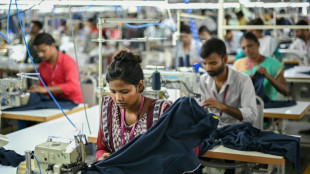 India eyes new markets with US trade deal limbo
India eyes new markets with US trade deal limbo
-
Syria's Kurdish fighters agree to leave Aleppo after deadly clashes
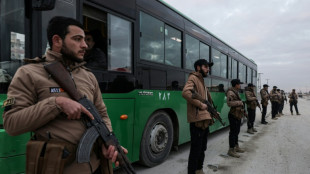
-
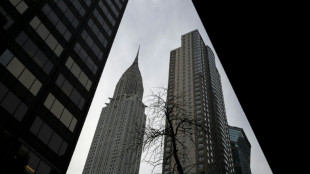 New York's Chrysler Building, an art deco jewel, seeks new owner
New York's Chrysler Building, an art deco jewel, seeks new owner
-
AI toys look for bright side after troubled start

-
 AI pendants back in vogue at tech show after early setback
AI pendants back in vogue at tech show after early setback
-
Grateful Dead co-founder and guitarist Bob Weir dies aged 78
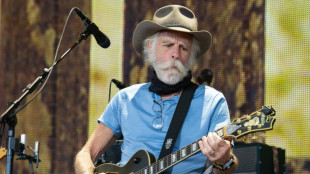
-
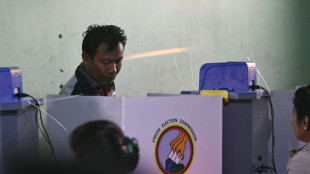 Myanmar votes in second phase of junta-run election
Myanmar votes in second phase of junta-run election
-
'One Battle After Another' heads into Golden Globes as favorite
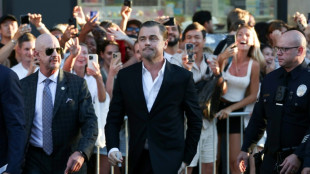
-
 Rams survive Panthers scare to advance in NFL playoffs
Rams survive Panthers scare to advance in NFL playoffs
-
Rallies across US after woman shot and killed by immigration agent
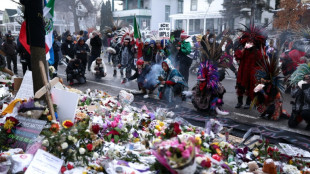
-
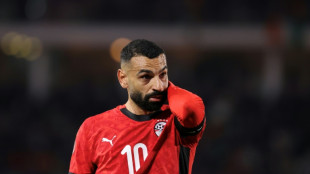 Egypt dump out holders Ivory Coast as Nigeria set up AFCON semi with Morocco
Egypt dump out holders Ivory Coast as Nigeria set up AFCON semi with Morocco
-
Rosenior salutes 'outstanding' start to Chelsea reign
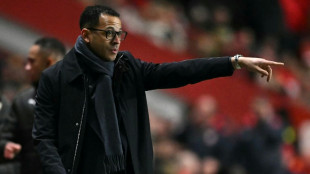
-
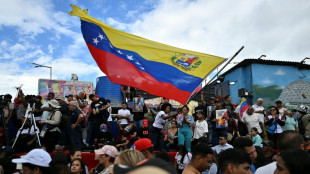 Maduro loyalists stage modest rally as Venezuelan govt courts US
Maduro loyalists stage modest rally as Venezuelan govt courts US
-
Byrne late penalty fires Leinster into Champions Cup last 16 after 'ding-dong' battle
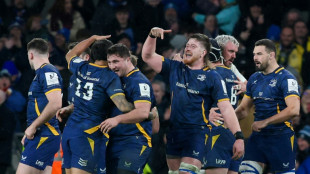
-
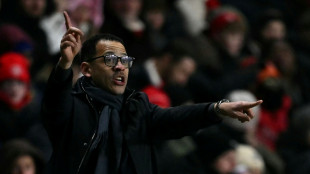 Rosenior makes flying start as Chelsea rout Charlton in FA Cup
Rosenior makes flying start as Chelsea rout Charlton in FA Cup
-
Rallies across US against shooting of woman by immigration agent
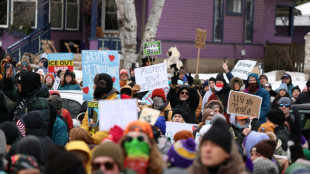
-
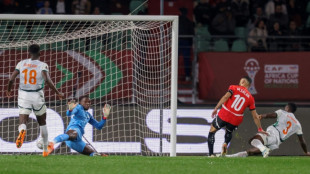 Salah closer to AFCON glory as Egypt dethrone champions Ivory Coast
Salah closer to AFCON glory as Egypt dethrone champions Ivory Coast
-
O'Neil ends 'crazy three days' with Strasbourg cup canter
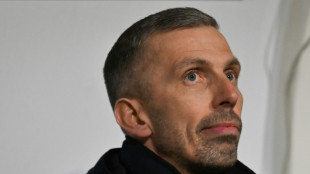

China's rulers push party role before WWII anniversary
An elderly Chinese war veteran's shin still bears the mark of a bullet wound he suffered when fighting the Japanese as a teenager, a year before the end of World War II.
Eighty years on, Li Jinshui's scar remains as testimony to the bravery of Chinese troops in a conflict that killed millions of their people.
But the story behind China's overthrow of the brutal Japanese occupation is deeply contested.
Historians broadly agree that credit for victory lies primarily with the Nationalist army, the dominant Chinese force at the time.
However, its leader, Chiang Kai-shek, fled to Taiwan in 1949 after losing a civil war to Mao Zedong's communists, laying the groundwork for decades of cross-strait tensions that continue to this day.
Beijing argues that the Communist Party (CCP) played a central role in the war, bolstered by the stories of Li and his comrades' courage and sacrifice.
It is a narrative expected to prevail at a major military parade on September 3.
"With the country in trouble, Chinese people with conscience had to stand up," said Li, who turned 98 on Wednesday and was a soldier in the CCP-run Eighth Route Army.
After Japan's full-scale invasion in 1937, the CCP resisted mainly by guerrilla fighting in the rural, hilly stretches of northern China outside of Nationalist control.
Li was shot in the leg while fighting the Japanese in his native Wuxiang County in China's rugged northern province of Shanxi.
Released from the hospital early, he returned to the battlefield despite not having fully recovered.
Dressed in a green military uniform topped by a cap with a red star, Li bent to pull up his left trouser leg, revealing the scar he has carried for decades.
"It was extremely hard for us," he said.
"We were just young lads."
- Making grenades -
At a government-organised media tour in July, veterans including Li touted the CCP's role in liberating China from the yoke of Japanese imperialism.
"The Kuomintang didn't play a major role in the war against Japanese aggression," said Wen Yunfu, 96, referring to Chiang's Nationalist Party by its Chinese name.
"It was mainly the Communist Party."
Wen's hometown of Shenzhou in northern Hebei was attacked by the Japanese army just a few months after their 1937 invasion.
Chiang's army was forced to retreat south in the face of the Japanese onslaught.
That left the people under the leadership of the Communist Party, Wen said.
"Life was extremely difficult for the people," he said.
"Our home was burned down. My uncle was also killed by the Japanese."
Wen later joined Mao's CCP at 16 in the final months of the war, and was put to work making grenades.
A truce was called in the civil war between the Kuomintang, which ruled most of the country at the time, and the insurgent Communist Party in the years leading up to the defeat of Japan in 1945.
That suspension came to an end in the wake of Japan's defeat, and the CCP was ultimately victorious in the ensuing domestic conflict.
- 'Correct' history -
Under Xi Jinping -- China's most powerful leader since Mao -- special attention has been paid to pushing the "correct" interpretation of the complex history of the victory over Japan, said Rana Mitter, author of multiple books on China's role in World War II.
"They're trying to find ways in which the Communist role can be brought more to the forefront," Mitter told AFP.
Mitter doesn't contest that the party's role was significant.
However, he said, "the primary role in terms of political and military resistance against the Japanese was played by the then-government of China, which was the Nationalist Kuomintang government".
There have been efforts in recent decades to recognise the contributions made by forces other than the Communists, including the Kuomintang and the United States.
One chapter that has received widespread attention is the "Flying Tigers" US air brigade that fought with the Kuomintang in the early 1940s, conducting dangerous assaults on enemy bombers.
A museum in Zhijiang, Hunan, sheds light on their assistance just a stone's throw away from a key airport from which they launched their missions.
Still, there are glimmers of the complicated history at play.
AFP could see the scars of three Chinese characters since removed from the monument.
The erased name is likely Wang Tung-yuan, according to Ji Jianliang, a local Communist Party historian.
Wang, a general under Chiang and later Taiwan's ambassador to South Korea, had once provided an inscribed dedication for the monument.
Ji said his name had been removed for "complex political reasons".
I.Yassin--SF-PST



